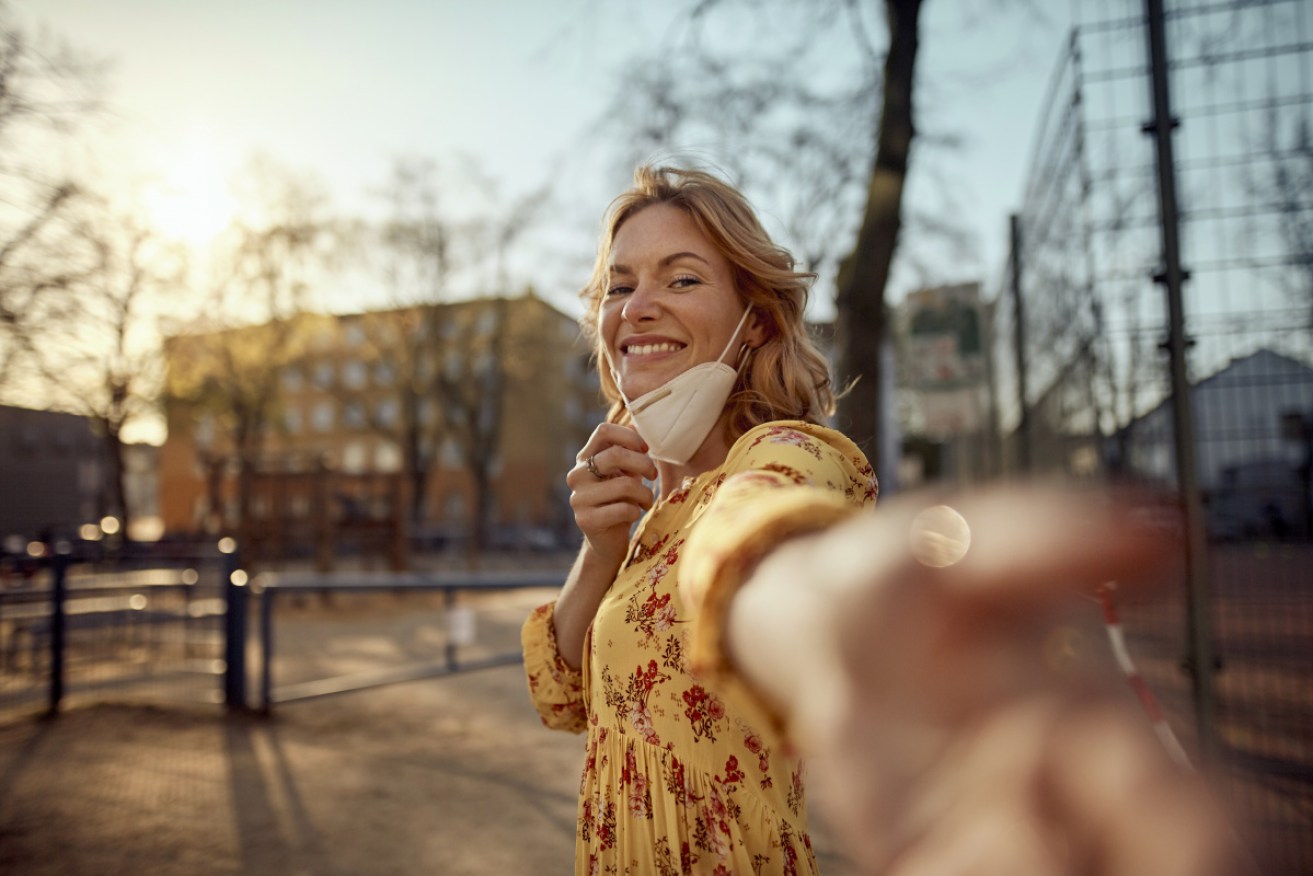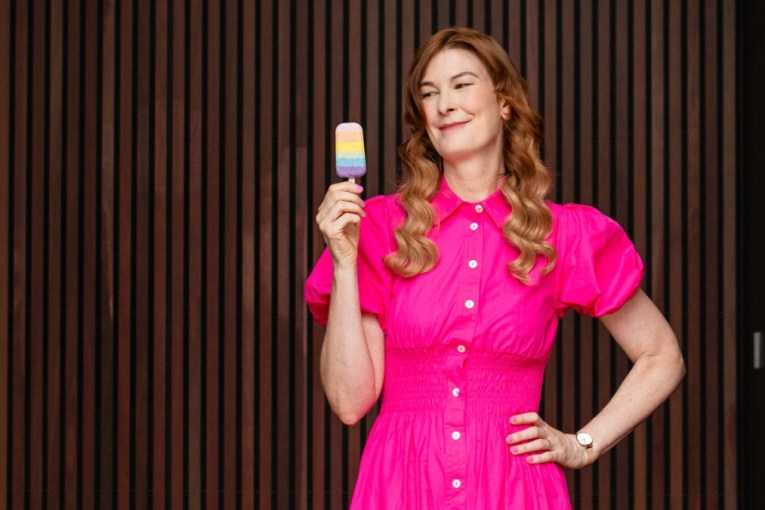Feeling smarter? How the coronavirus pandemic ‘changed’ your personality


Wanna hold my hand? Sure. COVID's made me more agreeable. Photo: Getty
We’ve heard a lot about the profound impact COVID-19 and social distancing measures have had on mental health in Australia, including that of children.
But some of the more dire predictions have failed to come true, notably the suicide rate, which was expected to soar. But it didn’t. In fact, it actually dropped a little.
New research suggests that many people have thrived and emotionally grown during the pandemic. In fact, the researchers go so far as to say that the COVID-19 experience for many people has been so powerful as to change the make-up of their personalities.
Overall, they found that about 80 pert cent of Australians “saw a change in at least one of the five major ‘OCEAN’ personality traits due to COVID-19″.
The OCEAN theory identifies the five main personality traits as: openness to experience; conscientiousness; extraversion; agreeableness; and neuroticism.
The researchers found that:
- 36 per cent of Australians believe they are more conscientious
- 31 per cent are open to new experiences
- And 30 percent of people reported increased agreeableness, despite the pressures of living under lockdown and the need to follow masking and social distancing rules while out and about.
Where did this research come from?
These insights didn’t come from the mental health sector, or social research, but from big business keen to understand and exploit major shifts in population behaviour.
The research took the form of a representative survey of 3,200 consumers in the UK, America and Australia. Reported here are the Australian figures.
Oracle, a multinational computer technology corporation, commissioned the survey because of concerns that COVID-19 “will continue to have massive implications on our consumption and buying behaviour as we move forward in a post-pandemic era”.
And further: “Our lives were impacted in ways we couldn’t control, and our rapidly changing consumer habits make it hard for brands to keep up.”
In other words, COVID-19 has brought about shifts in how many people behave to an extent that companies are losing track of how to market their products.
The New Daily wrote about some of these shifts in March.

Hoarding toilet paper was but one shift in consumer behaviour due to COVID-19. Photo: ABC
Does the research stack up?
As a simple snapshot of how people are feeling about themselves in different ways because of their COVID-19 experience, the research is suggestive of something powerful going on – but we can only speculate what that is when teasing these numbers apart.
We might feel more open to new experiences because we’ve found the restrictions wrought by COVID-19 boring – or simply that after a spot of lockdown, suddenly a walk in the park is pleasant, and not to be taken for granted.
The idea that many people believe themselves to be more agreeable is a consequence of making the best of things when the kids weren’t able to go to school, you had to work at home – or deal with no work at all.
Adversity doesn’t bring out the best in everyone, but it’s not an uncommon experience.
Psychologist Lyn Bender says the researchers have gone too far by talking about changes in personality traits.
“I don’t think you get deep personality shifts because of COVID-19 – you get behavioural shifts,” Ms Bender said. “Personality endures even through dementia sometimes. They might have some change but they’re still imbuing traits.”
Still, behavioural changes are significant “and it can make a big difference to our quality of life”.
When people talk about feeling more conscientious, Ms Bender said, it may be more to do with enjoying the greater autonomy that came with working out of the office, having more free time because of not commuting, and simply doing the job you’ve always done without someone looking over the shoulder.
“When you’re doing these self-evaluations, it’s obviously subjective,” she said.
“You might evaluate yourself as more conscientious, when maybe you’re not: maybe you just feel better about you.”
We think we’re smarter
Seventy per cent of Australians say they read more and learned more during the pandemic and now feel smarter. This was equal with their US counterparts and more than their UK counterparts (63 per cent).
But as Ms Bender points out: in this age of fake news, and polarised opinions, it all depends on what you’ve been reading and how you get your information. There is no greater know-all than a conspiracy theorist.
On the other hand, people have been hungry for information about the virus, the vaccine roll-out, side effects and what to tell their children. Suddenly people were “listening carefully to epidemiologists”, Ms Bender said.
It’s not that long ago when few people knew what an epidemiologist was.








